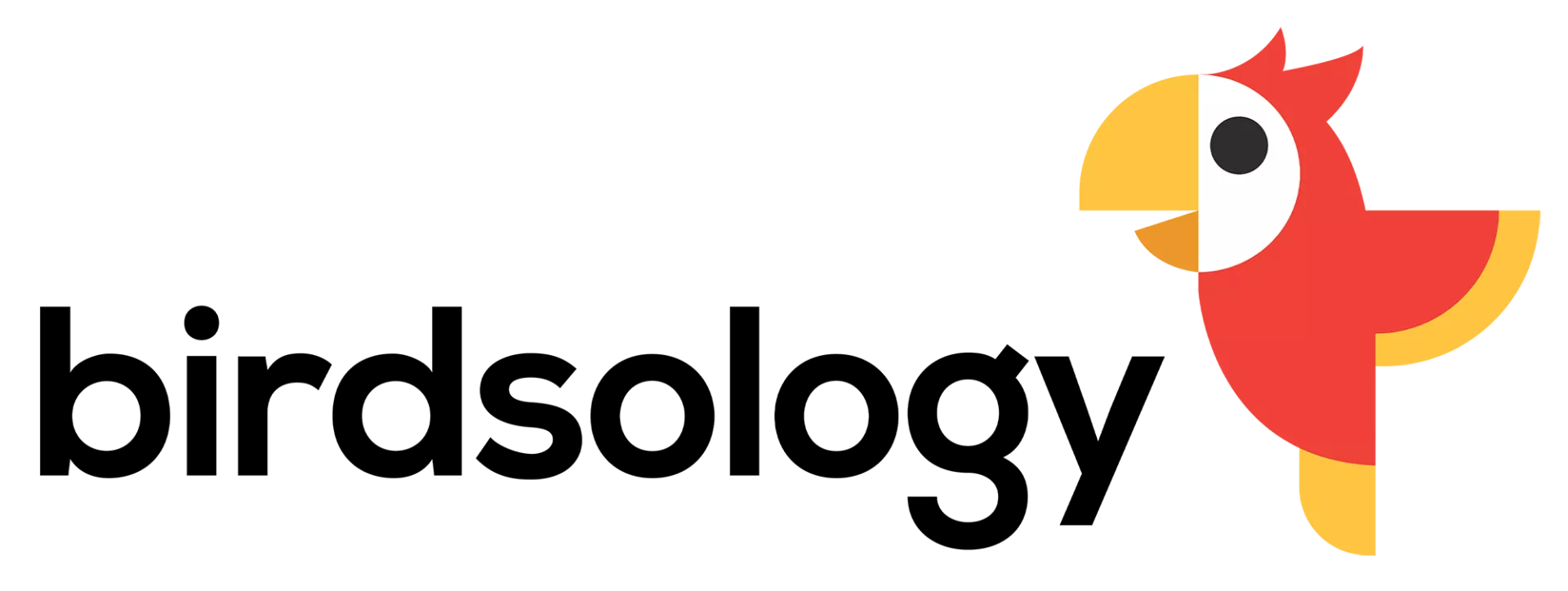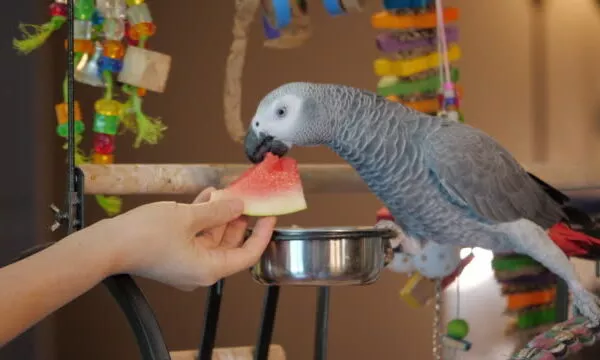Chocolate is one of the world’s most enjoyable treats. Some people believe that the most alluring pleasure we may experience as humans is eating chocolate. This delicious nature of chocolate makes many birds owner think that can birds eat chocolate. Is chocolate safe for them? If you are one of these bird owners, you are at the right place. In this blog post we will explore this question in detail can birds eat chocolate? so continue reading.
Despite our varied tastes, it might be difficult to find a pet owner who doesn’t consume chocolate. We care for our pets, thus we also want to share pleasant things with them. But among the few things we should never offer our pets is chocolate. It is poisonous and can lead to death. We must first do accurate research in order to keep our pet birds secure.
Birds like and may safely eat fruits, yams, and baked goods. It might be tempting to give a bird a piece of candy or a cookie after you’ve shared one delicious dish with it since, after that, it will want everything it sees you eating. Make sure the treat you’re going to give your pet is safe and take care of its health.
Can birds eat chocolate?
One of the many substances that are harmful to your bird is chocolate. If it consumes chocolate, it may not immediately die, but there is always a chance that it may, or that there will be other immediate and long-term health issues.
The Diet of birds is quite different from that of humans. We want to consume prepared, safe food. However, the digestive tract of a bird is not used to ingesting heated food. A bird’s body will be affected by chocolate when consumed and will have too many difficulties, even in modest quantities. When finished, it will have an impact on the digestive system and cause vomiting and diarrhea. Healthy fruit or beans are safe for birds to consume. Such food is packed with nutrients that will help a bird live a long and healthy life.
The Dangers of Chocolate for Birds
Chocolate includes theobromine and caffeine, two compounds that, even in very little amounts, may make your bird hyperactive, produce seizures or tremors, or even cause cardiac arrest. Additionally, chocolate may cause vomiting and diarrhea in certain birds.
More cocoa is present in darker chocolate, which makes it more harmful to birds in terms of caffeine and theobromine. Even healthier chocolates still include sugar and milk, which are unhealthy for birds to consume.
My Bird Took Chocolate And Is Okay
This occurs. Without recognizing the danger, you offer your bird a taste of your chocolate ice cream or a bite of your candy bar, and it has no negative repercussions.
You could question if your situation is an exception or decide that this doesn’t apply to my bird.
It’s risky to assume anything like this. Theobromine and caffeine may still be dangerously raising your bird’s heart rate even if she exhibits no symptoms.
It’s awful for your bird to let this happen even once, and continuing to expose it to the poison might result in fatal reactions or even death. No matter how everything seems to be going well, each time you let your bird eat chocolate, you endanger her.
What if chocolate is just one of the ingredients?
If chocolate is a component of any food product, it was probably not made with animals in mind. Even if there is just a little bit of chocolate in the food item, it is still “human food” and shouldn’t be given to your bird.
Due to their tiny size and the fact that their digestive systems are not built to handle the same types of food that humans do, even little quantities of substances like sugar, caffeine, artificial flavoring, and coloring may have a significantly negative effect on a bird’s health.
What to do if my pet bird eats chocolate?
Do not get alarmed if your bird eats some chocolate. Think about how much chocolate he ate.
Most likely, if he had a little taste of Nutella, a baked item, or anything else with a small bit of chocolate, he would be OK this time. For the following hour or two, however, you should keep a tight check on him, looking out for any strange actions or signs like trembling.
It could be a good idea to take your bird to a vet or at the least give them a call to find out how worried you should be if your bird ate chocolate with a high cocoa content or if he consumed more than just a nibble. To get more information, you may also contact the Animal Poison Control Center.
Make an urgent appointment with your avian veterinarian as soon as your bird exhibits any toxic poisoning signs.
What to do if my bird demands Chocolate
Any chocolate you’re eating will probably be pestered for sharing by birds who are used to sharing your food or who just think chocolate looks extra excellent. No matter how charming or persistent they are, don’t succumb to their pleading.
It could be wise to eat your chocolate treats in a different room if you find it difficult to say no so that your bird. Another option is to provide your bird with one of its preferred bird-safe treats, such as an apple slice, nut, or sunflower seed.
In this manner, you may share a snack without endangering the well-being of your bird.
Additional Foods That Should Never Be Given to Birds
One of the things you should never offer your bird is chocolate. If it’s harmful to people, it’s undoubtedly harmful to your bird as well! However, birds should still avoid consuming several substances that humans may eat.
Prohibited foods for birds
Among them are the following:
- Coffee and other caffeinated beverages
- Alcohol
- Fruit pits, seeds, and apple seeds
- meat and dairy
- Onions with garlic
- Nightshades
- Foods that have been fried or processed and include a lot of salt or sugar
Some foods are more harmful than others among these foodstuffs. Coffee and alcohol, for instance, are a BIG NO-NO.
Meat and fried meals are heavy in cholesterol and saturated fat, and sugary and salty foods are not good for your bird for the same reasons they are not good for you. Garlic has the ability to upset a bird’s digestive system, however, opinions on this matter are mixed.
Anemia is caused by onions, which destroy red blood cells. Finally, since nightshades are harmful, avoid giving your bird tomato leaves or stems.
Dangers of Feeding Your Bird Junk Food
It’s not only that some of these things are hazardous to birds, most of the time, but human diet also is just not good for birds.
It often includes larger amounts of salt, sugar, or spices than are healthy for your bird and is also fattening. As soon as birds develop a taste for these foods, they could be hesitant to consume better, safer alternatives, which can result in nutritional deficiencies and behavioral problems.
Deficits in Nutrients
Pet birds that primarily eat seeds, nuts, and/or “human food” have alarmingly high rates of obesity, degenerative joint disease, and nutritional deficiencies. The longer you let your bird nibble on these foods, the less likely she will want to eat a balanced diet.
Your bird’s long-term health and even how long she lives depend greatly on her diet. The main cause of illness and death in pet birds is nutritional deficiencies.
Birds that do not consume a premium Nutrientsdiet tailored to their species often experience obesity, liver, and renal illness, or heart failure and have substantially shorter lifespans than they would have if their nutritional requirements were satisfied.
Avoid giving non-bird food to your bird as much as you can. Instead, provide your particular kind of bird with a nutritious, diverse meal that meets its demands.
For many parrots, this consists of a nutrient-dense pellet, a tonne of delectable vegetables, and some fruit and seeds. Additionally, you may prepare dishes made specifically for birds like chop (a combination of grains, vegetables, pasta, and sprouts) and birdie bread (a quickbread made with nutritious, bird-safe ingredients—meant to be a treat only!).
Issues with Behavior
Another issue that often results from feeding birds excessive amounts of junk food is that they start acting out negatively, such as biting, stealing food, and shrieking when they want what you’re eating. Negative behavior may also result from your bird’s poor health brought on by this unbalanced diet.
Simply switching a bird to a healthy, balanced diet may alleviate a myriad of behavioral problems.
How to Substitute Safe Treats for Birds in Place of Unhealthy Treats
Your bird will appreciate a variety of nutritious, safe treats just as much as he does human sweets and junk food, if not more. Consider providing fruit as a reward for your avian companions.
When your bird starts to feel left out while you munch, keep favorite treats like almonds or millet sprays close at reach.
Target training and trick training are two of the finest strategies to break these undesirable behaviors if your bird has behavioral problems connected to nibbling. Save his favorite treats (nuts, sunflower seeds, etc.) for these training sessions and learn to ask for behavior from your bird before delivering a gift.
A bird will also be less likely to seek alternatives if it is eating a balanced, nutritious diet with plenty of variety (including seasonal vegetables, sweet potatoes, sprouted grains, etc.).
Last but not least, you may find recipes for bird-safe versions of foods like pizza, bread, and macaroni & cheese online. If your bird is completely dependent on human food, you may prepare these meals as a treat or as a way to help him switch to a healthy diet.
Giving your bird exactly what he wants is not a necessary part of loving him. It’s about giving him what he needs, and in the long run, you’ll benefit greatly from it.
Final thoughts on can birds eat chocolate.
Birds can not eat chocolate. It is quite dangerous for them and should be avoided at any cost. Even if your bird insists to eat chocolate from your hand you should not succumb to the pressure and give your bird chocolate. The best thing to do is to not eat chocolate in front of your bird and provide him with healthy treats.






